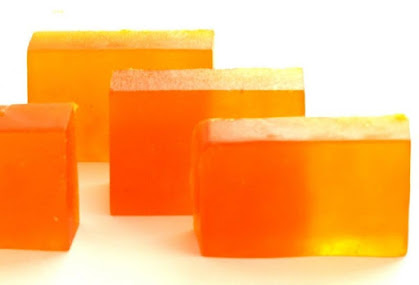From Ocean to Bath: Exploring the Wonders of Natural Sea Salt and Natural Soaps
Sea salts and vigorous handmade soaps, through nature's blessings, bring a lot of remedial benefits. From a well-depth bath to a little bit, these natural treasures were withheld for generations for their purity, effectiveness, and calming aromas. This essay discusses pure natural sea salt and natural soap, both of which are interesting and worth exploring as they have origins, qualities, and uses in our daily lives.
Origins of Natural Sea Salt:
Natural sea salt is formed through the process of evaporation, where seawater is exposed to sunlight and wind, causing the water to evaporate and leaving behind pure salt crystals. This ancient method of salt production has been practiced for thousands of years, dating back to civilizations such as the Egyptians and the Greeks. Today, sea salt is harvested sustainably from pristine ocean waters, preserving its mineral-rich composition and unique flavor profile.
Benefits for Culinary Delights and Beyond:
Salt of the sea is a costly complement to culinary products as it can improve the flavor and texture of already nice food. Different from table salt, which undergoes intensive processing of its minerals, sea salt contains natural inherited minerals like magnesium, potassium, and calcium, which bring out the full flavor and impart a rich touch to food recipes. Besides the kitchen, sea salt has many applications that range from food preservation to relaxation with bath salts and scrub production.
The Art and Science of Soapmaking:
Natural soaps are crafted using traditional soap making techniques passed down through generations. The process begins with combining fats or oils with an alkali, such as sodium hydroxide or potassium hydroxide, to initiate saponification. This chemical reaction produces soap and glycerin, resulting in a gentle and moisturizing cleanser. Handcrafted soap is made with high-quality ingredients, including botanicals, essential oils, and nourishing oils, to provide a luxurious and indulgent bathing experience.
Nourishing the Skin with soap:
What's more, clocking in a range between 6.0 and 7.0 is considered a healthy pH level for the skin. Balanced pH levels not only promote healthy-looking skin but also prevent inflammation and acne. Unlike commercial soaps that might be full of harsh chemicals and synthetic fragrances, natural soap is free of any chemical or preservative additives. Therefore, compared to commercial soaps, natural soap is better suited for any skin type, including sensitive skin. The soap contains nourishing oils and plant extracts that, while washing, bathing, and moisturizing the skin, will greatly improve its condition, leaving it soft, smooth, and beautiful.
Incorporating Nature's Treasures into Daily Rituals:
It can thus be inferred that by mixing salt from the sea with our personal care routine, we may be able to promote our own care and nourish our souls, minds, and bodies. A drop of sea salt can effectively penetrate your skin, relax the muscles, take off the stress, and give some relief, which is, in fact, helpful in toxin elimination. Likewise, one might experience the sensory aspect of soap, for example, when used with essential oil scents, and imagine the feelings of cleanliness and newborn life.
Whether sea salt and soap make us feel a sense of true pampering or work as an implement with nature’s healing properties, they nonetheless become an integral part of our everyday self-care. From the kitchen appliances to the bathroom luxury and the end of our fingers, these obedient servants add color and joy in all places. By accepting the simplicity and potency of organic compounds, we could reach a state of full physiologic and spiritual health. This equalizes humans with nature.


Comments
Post a Comment